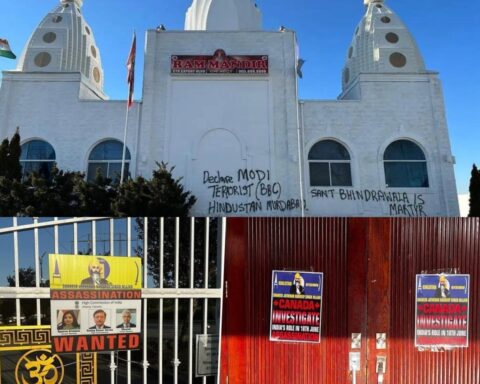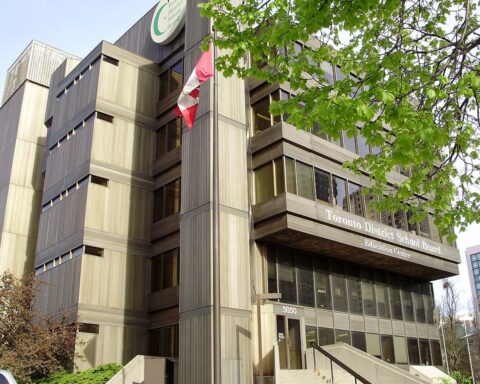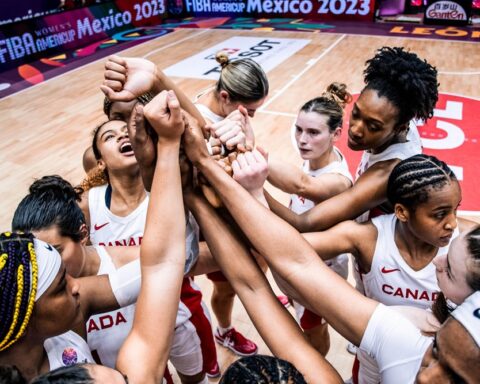If the New Democratic Party (NDP) seeks to truly engage ethnic and racialized communities in this October’s federal election, it needs to borrow a page from former leader Jack Layton’s legacy.
“Jack Layton, before there was any hope of winning any sort of racialized riding, would come out to events and speak on issues that matter,” deputy leader of the Ontario NDP, Jagmeet Singh, told New Canadian Media during a dinner the party held in Scarborough Monday night to mix and mingle with ethnic media outlets representing more than 20 diaspora communities. “[He’d] speak on human rights and take positions on human rights that were actually in line with the community wanted.”
Sincerity Is Key
Singh, who was elected in the riding of Bramalea-Gore-Malton in the 2011 provincial election, is known for being vocal about human rights and issues affecting racialized communities – most recently police carding. He says it’s important for ethnic communities to not buy into the “false sense of support” that comes from politicians attending particular cultural events when they’re on the campaign trail.
Engaging diverse communities in meaningful and respectful ways continues to be an area that Canada’s various levels of government need to become better at.
“[T]here’s no doubt that political parties will come just at the eve of an election and show up just at the right time and shake hands with the right people and get the right pictures just to show that they are in support of that community,” he says. “You have to actually look into what they say, what policies they bring forward, what is their message that actually connects with the community.”
Andrea Horwath, NDP leader in Ontario, says her party has a great opportunity in the upcoming election to do the type of engagement work Singh speaks of across the country – starting with the diversity of the candidates themselves.
“I know the slate of candidates that we have has got a number of people that reflect diverse communities and that’s very exciting, but it’s a matter of making sure that it’s not a matter of those candidates in isolation,” she told New Canadian Media.
Making Real Inroads
Engaging diverse communities in meaningful and respectful ways continues to be an area that Canada’s various levels of government need to become better at. Horwath spoke of meeting with a community group earlier that afternoon that serves Spanish-speaking people in North Toronto and their concerns with the government around a lack of engagement in the Pan Am/Parapan Am Games coming to Toronto in July.
It’s important for any political party to not only encourage diversity amongst their candidates but also amongst those candidates’ staff members.
“That’s a failure of the government to recognize not only an opportunity, but an obligation, quite frankly,” Horwath says. “If you’re going to host the Pan American Games and the Parapan American Games, then you have to actually be respectful of those people whose cultures and languages who [are reflected].”
Viresh Fernando, a self-claimed “political junkie” and resident of Toronto’s Thorncliffe community – where, according to Statistics Canada, 71 per cent of the population’s first language is neither English nor French – says the best tool politicians could use to engage ethnic communities is intimate, meaningful dialogue.
“Stop listening to self-appointed leaders and really sit down for a couple of hours with a small group of people and let them talk to you and keep asking them questions without having your handlers around you,” he says. In fact, he points out that during the NDP’s dinner event he would have liked to see Horwath circulate more from table to table during dinner and speak informally to the various ethnic media and community members in the room.
More involvement in the system is something many representatives of the ethnic media collectively agreed they’d like to see.
Staff, Media Engagement Needs to Become More Diverse
Further to that, Fernando points out it’s important for any political party to not only encourage diversity amongst their candidates but also amongst those candidates’ staff members. “The political staff tend not to represent the ethnic communities at all,” he says.
Fernando added that he believes why Ontario Premier Kathleen Wynne encountered such a backlash from various ethnic communities around her recent sex-ed curriculum – something many members of the media asked Horwath for her take on during the event’s press scrum – was due to a lack of understanding. If Wynne had more diverse voices on her staff, she may not be spending $1.8 million on communication messages around the curriculum, Fernando says.
More involvement in the system is something many representatives of the ethnic media collectively agreed they’d like to see.
“We want to be part of the system, someone who can represent us,” said Mohamed Busuri of the Somali Canadian Times.
“We encourage participation of members of the Filipino community in politics to show the strength in our community,” agreed Rose Tijam, president of the Philippine Press Club, adding, “Filipinos don’t want anything different from mainstream Canadians – work, jobs, housing.”
As the NDP continues to ramp up its engagement with diverse communities at both the political and federal levels with events like this one, there is one thing Fernando warns it and other parties should never do on the campaign trail: “Please don’t insult people by dressing in their costumes . . . do not engage in tokenism.”





